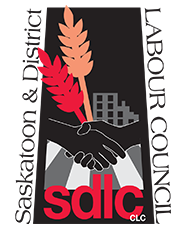New Steward Manual
As a steward, you are an important face of SGEU. You are a leader who makes our union strong. The vital work you do to serve your fellow SGEU members can often be rewarding, and at times, may be challenging. But you’re not in this alone.
That’s why we’ve created a new Steward Manual for you. We want to ensure that you have a handy resource guide that’s filled with relevant, up-to-date information about being a steward. Inside the manual, you’ll find the relevant topics and questions that will help you in your important role as a steward.
New Member Orientation
SGEU is pleased to share a new, revised orientation resource for you as stewards to share with new members!
Download Printer Friendly Version
Legal
Duty to Accommodate
Employers have a legal duty to reasonably accommodate characteristics identified in The Saskatchewan Human Rights Code unless doing so creates an undue hardship on the employer. Part II: Employment Standards of The Saskatchewan Employment Act defines accommodation as: “modifying the duties or reassigning the employee”. This duty applies to all characteristics identified in the Code including: disabilities, family status, pregnancy, ancestry, and religion.
For additional information on this topic, please see The Saskatchewan Human Rights Commission.
Duty of Fair Representation
All members have the legal right to fair treatment from the union and its representatives, as outlined in section 6-59 in the The Saskatchewan Employment Act. "Fair representation" means stewards should represent all union members fairly and honestly. The duty of fair representation does not mean that unions must take every grievance through to arbitration. It means a grievance must be judged on its merits.
For additional information, view Chapter 5 in the SGEU Steward Manual.
Stewards FAQ
SGEU stewards are workplace leaders who handle grievances, build unity, and promote involvement among members in the workplace. As a steward, you are the first person workers should speak to when they have questions or concerns about their workplace or are seeking the help of their union. While stewards are not expected to solve every problem, being able to provide your coworkers with useful information and assurance is a good start.
The top three objectives of a steward are:
- Build a strong union in your workplace
- Resolve disputes when you see or hear about them
- Handle grievances
Stewards play an important role in supporting and representing members. Five roles of a steward are:
- Negotiating
- Leading
- Educating
- Communicating
- Building solidarity
Chief stewards fulfill the duties of a steward and work with other stewards in their workplace/zone. The roles of a chief steward are:
- Communicating
- Resolving conflict
- Leading
- Coordinating grievances
- Recruiting new stewards
- Mentoring and training
- Educating new stewards
- Conducting administrative duties
For there to be a grievance there must be a violation of the collective bargaining agreement or legislation. In some instances, past practice and employer policy may also be grieved.
The three types of grievances are:
- Individual: A dispute affecting only one member seeking an outcome that will resolve the dispute for that member.
- Group: Involves multiple members in a common dispute; these grievances seek an outcome that will address the issue for all members involved.
- Policy: Filed by a bargaining unit seeking a resolution that will affect all members in a segment of the bargaining unit or all members in the entire bargaining unit.
The key to good grievance handling is a proper investigation, and that process should start with interviewing the member who comes to you with a problem. Based on this key interview, you will make several important decisions such as what to do with the problem, whether to investigate it further, and how to resolve the issue.
Ask and answer these four questions:
- Who is involved?
- When did the incident occur?
- What happened or didn't happen?
- Why did the incident occur?
An action or decision is grounds for a grievance if it:
- Violates the collective bargaining agreement
- Wrongly inteprets a clause in the collective bargaining agreement
- Violates a federal or provincial labour law
- Violates the employer's own policies
- Violates a worker's right to natural justice (which guarantees a fair hearing before a worker faces negative consequences)
- Violates past practice
Note that not all workplace issues are appropriate subject matter for a grievance, even if a member has a legitimate complaint. Some issues may need to be directed to external bodies, such as the Saskatchewan Human Rights Comission or the province's Occupational Health and Safety Division.
Once a grievance is filed, it becomes the responsiblity of SGEU. The decision to withdraw a grievance must be made by the member(s) involved in the grievance or by the Labour Relations Officer (LRO) assigned to that grievance. The member may appeal the decision using SGEU's grievance review process.
If a member decides to withdraw a grievance they initiated, their steward should direct them to give written notice of their decision to the assigned LRO. The steward may also provide this written notice on behalf of the member.
A steward should never cease working on a grievance until it has been formally withdrawn. Doing so is considered abandonment and is grounds for SGEU to face charges failing its duty to represent its members.
Insubordination is usually defined as the failure by an employee to perform a task or comply with an order given to them by a supervisor. An arbitrator will usually look at an employee's compliance with a reasonable order as basic to the conduct of the employer's business. Arbitrators take the issue of insubordination very seriously and consider it a major infraction, one beyond the rules of progressive discipline.
For every discipline case involved insubordination, arbitrators hold the rule "obey now, grieve later".
To confirm whether your registration to be a steward has been received, contact Member Information Services at 1-800-667-5221 or email mis@sgeu.org.





